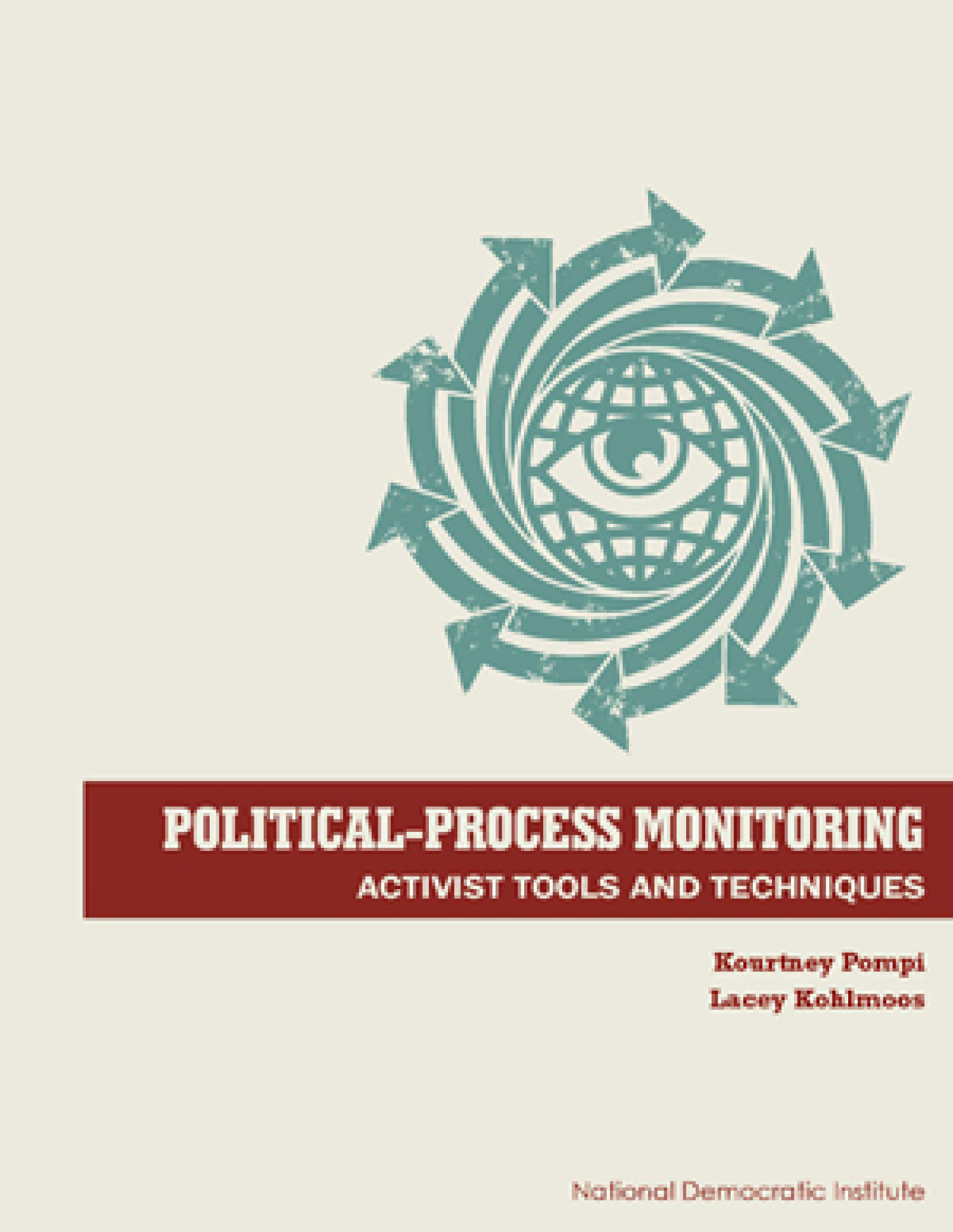
SHARE
Monitoring how governments work is an important citizen responsibility in democracies. Have elected officials fulfilled their campaign promises and are they worthy of being returned to office? Have there been abuses of power? Are taxpayer funds being spent in a responsible manner?
These are just some of the questions facing citizens as they scrutinize government performance, which can be a daunting task, particularly in new and emerging democracies where few citizens have the experience or tools to monitor effectively.
Since its founding 27 years ago, NDI has worked to help hundreds of citizen groups answer these questions. And now, for the first time, the Institute has compiled that experience — along with practical tools, worksheets, checklists and case studies — into a new manual, Political Process Monitoring: Activist Tools and Techniques.
The guide focuses on five areas:
- Monitoring legislative sessions and committees, which fosters public accountability and helps citizens determine a legislature’s overall effectiveness.
- Budget monitoring, which allows citizens to analyze how governments spend money, whether it is spent efficiently and legally and whether a government’s spending priorities match its citizens’ needs.
- Shadow reports, which are used by civil society to monitor and raise awareness of government compliance with international treaties or declarations.
- Monitoring government follow through — monitoring government enforcement of laws, policies and regulations — allows citizens to see whether a law is having its intended effect and is being enforced fairly.
- Campaign monitoring, which helps citizens decide which candidates to vote for, which campaigns comply with election laws, and helps to hold winning candidates accountable to their campaign promises.
The guide also provides examples of forms, worksheets, checklists and reports used successfully by NDI partner groups around the world. Case studies give practical, real world examples of each of these types of monitoring.
For instance, in Jordan in 2007, public confidence in parliament was very low. The Al Quds Center for Political Studies partnered with NDI to create the Jordanian Parliament Monitor, which collected information about members of parliament (MP) and their attendance, voting records and responsiveness to constituents. Its monitoring reports were disseminated to MPs, citizen groups and international organizations. The increased attention and oversight prompted legislators to announce new water distribution policies, undertake new school construction, propose new air pollution standards and listen to citizen feedback on new laws and public projects.
Currently, the guide is being used by NDI in Iraq as the Institute works with local organizations monitoring the work of government at national and sub-national levels. The tools and methods used by other NDI partners, and highlighted in the manual, have helped Iraqi groups think about how best to approach their own monitoring activities given their local circumstances.
The Institute is preparing a companion toolkit that helps organizations measure and track the outcomes of their monitoring campaigns, as well as measure the effects a successful campaign can have on the organization itself — how its influence or membership might grow, for example. This companion guide will be available later this year.
Read more:
- Download the guide»
- Leading Jordanian research center promotes parliamentary openness and accountability»
- Burkina Faso women detail discrimination against women in U.N. report»
Pictured above: The manual's cover
Published May 2, 2011


